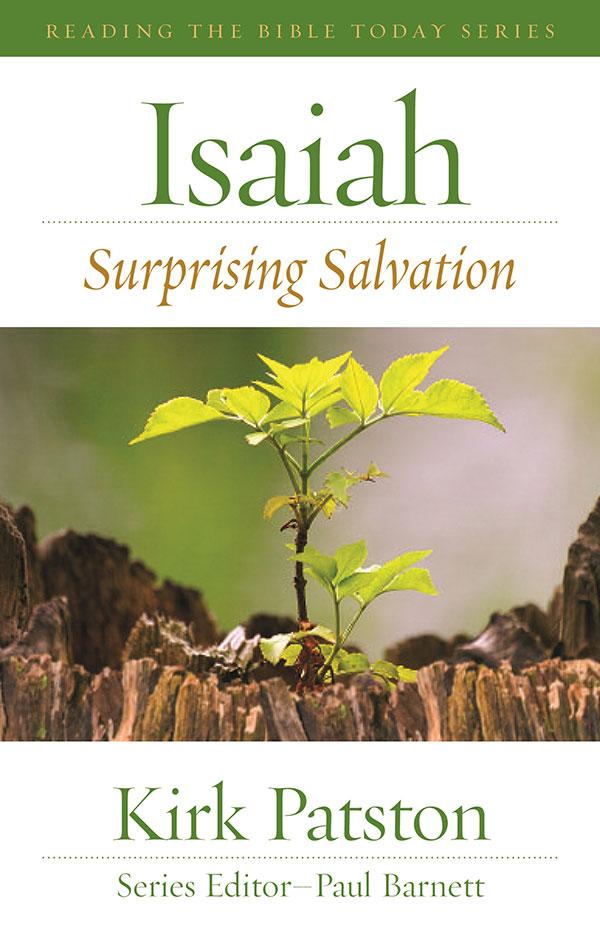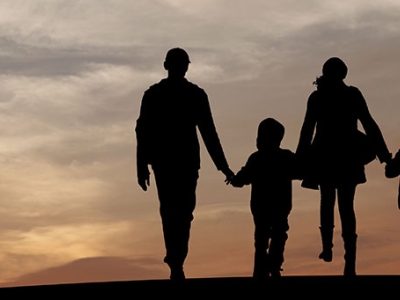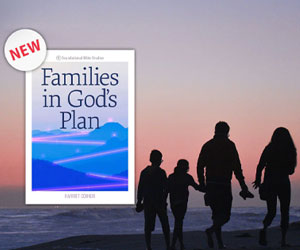
Real hope for the perfectly imperfect
For now, ‘good enough’ parents are just what our children need.
In recent articles, we’ve explored the reality of family life in a fallen world: our families are imperfect, so we need to keep on receiving and showing forgiveness; as parents, we fall short of ‘best practice’, so we’re utterly dependent on God’s grace.
Recent history—with its fires, floods and extended pandemics—has also made it painfully clear that the world our kids are growing up in is imperfect too—we cannot offer them a childhood free from disappointment and suffering.
For modern parents, who tend towards perfectionism, raising children in a fallen world can become excruciating, because nothing ever measures up to our expectations. We can become paralysed by disappointment, guilt, anxiety and fear for our children.
But as Christian parents, we are uniquely equipped for parenting this side of heaven. The Bible explains why we can’t expect perfection of ourselves, our children or the world: because we are living outside of Eden. The Bible also gives us real hope for the future: one day, we and our children (God willing) will live in a new and perfect world, where nothing will ever make us disappointed, guilty, anxious or afraid again.
Having imperfect parents equips children for real life
Knowing our place in the Bible’s timeline can help us to avoid the trap of perfectionism. Just as God made people in his image, human children are also born in the image of their parents (Genesis 5:1–3). Because we live after the Fall, our kids inherit both good and bad things from us.
But the Bible doesn’t see humans as trapped by their upbringing. As adults, God holds each person responsible for their own actions, regardless of what their parents did or didn’t do (see Ezekiel 18). God says, ‘Honour your father and mother’ (Exodus 20:12), but sometimes he also says, ‘Do not be like your parents’ (2 Chronicles 30:7). Part of the task of becoming an adult is to sort out which parts of your parents’ legacy you want to keep, and which parts you want to change or throw away. We have all done this, and so will our children.
Rather than wishing we were perfect, we can start to see our imperfections as a powerful parenting tool. When we fall short, let’s see it as an opportunity to model to our children how to navigate life as an imperfect person in this imperfect world. Let’s demonstrate how to repent—saying sorry to God and others, making amends and dusting ourselves off to try again tomorrow. When we wrong our children, it’s an opportunity for them to learn that the people around them aren’t perfect, and to start practising grace and forgiveness. As a recovering perfectionist, I’m hoping that my children will develop a skill that I never had: the ability to cope with failure.
It’s not having sinful parents that turns children off Christianity, but having hypocritical ones who never acknowledge their sin or apologise. When we genuinely repent of our sin and keep striving towards godliness, in dependence on God, our children will see true faith in action. Perfectionism is damaging for parents and children alike: what our kids really need are ‘good enough’ parents.
Having an imperfect childhood helps children grow
It’s tempting to feel sorry for our children because of what they’ve had to endure in recent years and to worry about how it might affect them negatively. But what if we changed our perspective: how might it be affecting them positively? The Book of James describes how hard things help people to mature:
‘Consider it pure joy, my brothers and sisters, whenever you face trials of many kinds, because you know that the testing of your faith produces perseverance. Let perseverance finish its work so that you may be mature and complete, not lacking anything.’ (James 1:2–4)
I used to feel bad for our kids because we didn’t have much disposable income when they were younger: we didn’t usually go on holidays, eat out or have fancy birthday parties, and we only had one small iPad that they had to share. Compared to their friends, their childhood was far from ‘magical’. But looking back, I am very thankful that it worked out that way. It meant that they really treasured a simple sleepover at their grandparents’ place or a birthday meal at a restaurant, and their screen time was limited by how well they could negotiate and share.
Similarly, let’s think about some of the things our children have been learning through the hardships of the pandemic. They have:
• learnt to depend on God for health, safety and courage each day
• learnt to communicate through phone/video calls, letters and parcels
• deepened their relationships with siblings and neighbours
• become flexible and adaptable when plans change
• found creative ways to spend time at home
• become brave, enduring the pain of tests and vaccinations
• appreciated the joys and persevered through the struggles of intense family life.
When hardships come, let’s not be too quick to cushion our children from their impact. If we allow our children to experience small doses of hard things now—with our help and support—we will be helping them to develop perseverance and a resilience to these things for life.
Imperfection has an expiry date
The Bible helps us to be realistic about life in a fallen world. But it also gives us hope for the future: God is preparing a perfect new creation for us and our children, free from our sin and suffering. I love the way God describes heaven to the prophet Isaiah:
‘See, I will create
new heavens and a new earth.
The former things will not be remembered,
nor will they come to mind.
But be glad and rejoice for ever
in what I will create,
for I will create Jerusalem to be a delight
and its people a joy.
I will rejoice over Jerusalem
and take delight in my people;
the sound of weeping and of crying
will be heard in it no more.
Never again will there be in it
an infant who lives but a few days,
or an old man who does not live out his years;
the one who dies at a hundred
will be thought a mere child;
the one who fails to reach a hundred
will be considered accursed.
They will build houses and dwell in them;
they will plant vineyards and eat their fruit.
No longer will they build houses and others live in them,
or plant and others eat.
For as the days of a tree,
so will be the days of my people;
my chosen ones will long enjoy
the work of their hands.
They will not labour in vain,
nor will they bear children doomed to misfortune;
for they will be a people blessed by the Lord,
they and their descendants with them.
Before they call I will answer;
while they are still speaking I will hear.
The wolf and the lamb will feed together,
and the lion will eat straw like the ox,
and dust will be the serpent’s food.
They will neither harm nor destroy
on all my holy mountain,’
says the Lord. (Isaiah 65:17–25)
Raising children this side of heaven is hard. But we can look forward to God’s new creation, where there will be no reason to feel guilty, anxious or afraid for our children anymore: God will bless his people ‘and their descendants with them’.
As well as preparing our children to navigate life in this fallen world, let’s encourage them to look forward to heaven and to put their trust in Jesus, the only one who can take us there.
---
Harriet Connor is the Content Editor for Growing Faith and the author of Big Picture Parents: Ancient Wisdom for Modern Life (Wipf and Stock, 2017). She lives on the Central Coast of NSW with her husband and four sons.

Isaiah - Surprising Salvation
Kirk Patston opens up the complex and majestic book of Isaiah in a commentary, perfectly suited for everyday reading and reference. Drawing out what this book would have meant to Israel in different periods of its history, Kirk highlights the themes of danger, trust, transformation and judgment which run throughout.
For more articles from Growing Faith, subscribe to our monthly e-newsletter.
To hear about the latest books and resources from Youthworks Media, subscribe here.








